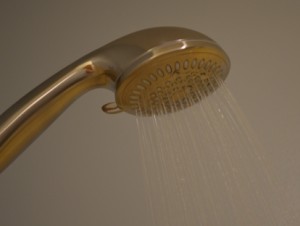Our lawyers are investigating an outbreak of Legionnaires’ Disease in Forsyth County, North Carolina.
“20 people have been diagnosed with Legionnaires’ Disease this year in Forsyth County. That is an unusually high number,” said Fred Pritzker, a who represents clients in Legionnaires’ Disease lawsuits against hospitals, hotels and other businesses. “Legionnaires’ is a severe form of pneumonia with a high mortality rate. Because of this, building owners are required to take measures to prevent the growth of the bacteria that causes the illness, Legionella, in water systems.”
The only way people can contract Legionnaires’ Disease is to breathe in water mist containing Legionella bacteria. When this happens, the bacteria infect the lungs and cause pneumonia.
What is Causing the Cases of Legionnaires’ Disease in Forsyth County?
 One of the 20 people sickened was a patient at Wake Forest Baptist Medical Center in Winston-Salem. Seven others were patients at Oak Forest Health and Rehabilitation. We reported on this back in July of 2014, Legionnaires’ Disease at Oak Forest Health Rehabilitation in Forsyth County, NC. Health officials have found evidence that the people at Oak Forest Health Rehabilitation contracted the disease while showering (breathing in tainted water mist created by the shower).
One of the 20 people sickened was a patient at Wake Forest Baptist Medical Center in Winston-Salem. Seven others were patients at Oak Forest Health and Rehabilitation. We reported on this back in July of 2014, Legionnaires’ Disease at Oak Forest Health Rehabilitation in Forsyth County, NC. Health officials have found evidence that the people at Oak Forest Health Rehabilitation contracted the disease while showering (breathing in tainted water mist created by the shower).
Legionella bacteria were found both at Wake Forest Baptist Medical Center and Oak Forest Health and Rehabilitation. The water for both of these facilities comes from the Winston-Salem Forsyth County Water Treatment plant; however, health officials do not believe that the county’s water contained the bacteria when it went out to customers. County officials say they put enough chlorine in the water before it goes to customers to kill any Legionella bacteria.
People sickened by Legionnaires’ Disease have the right to sue for the harm done to them from this illness. These lawsuits are important because they give those sickened access to information they might not otherwise have. For example, did Forsyth County health officials test water and environmental samples at the water treatment plant? Legionella has a genetic fingerprint. If Legionella bacteria with the same genetic fingerprint as the bacteria that caused the illnesses is found at the plant, that is good evidence that water from the plant is connected to the illnesses.
There are also 10 other cases in the Triad area: 5 cases in Guilford County (Greensboro area) and 5 in Davidson County (Lexington area).